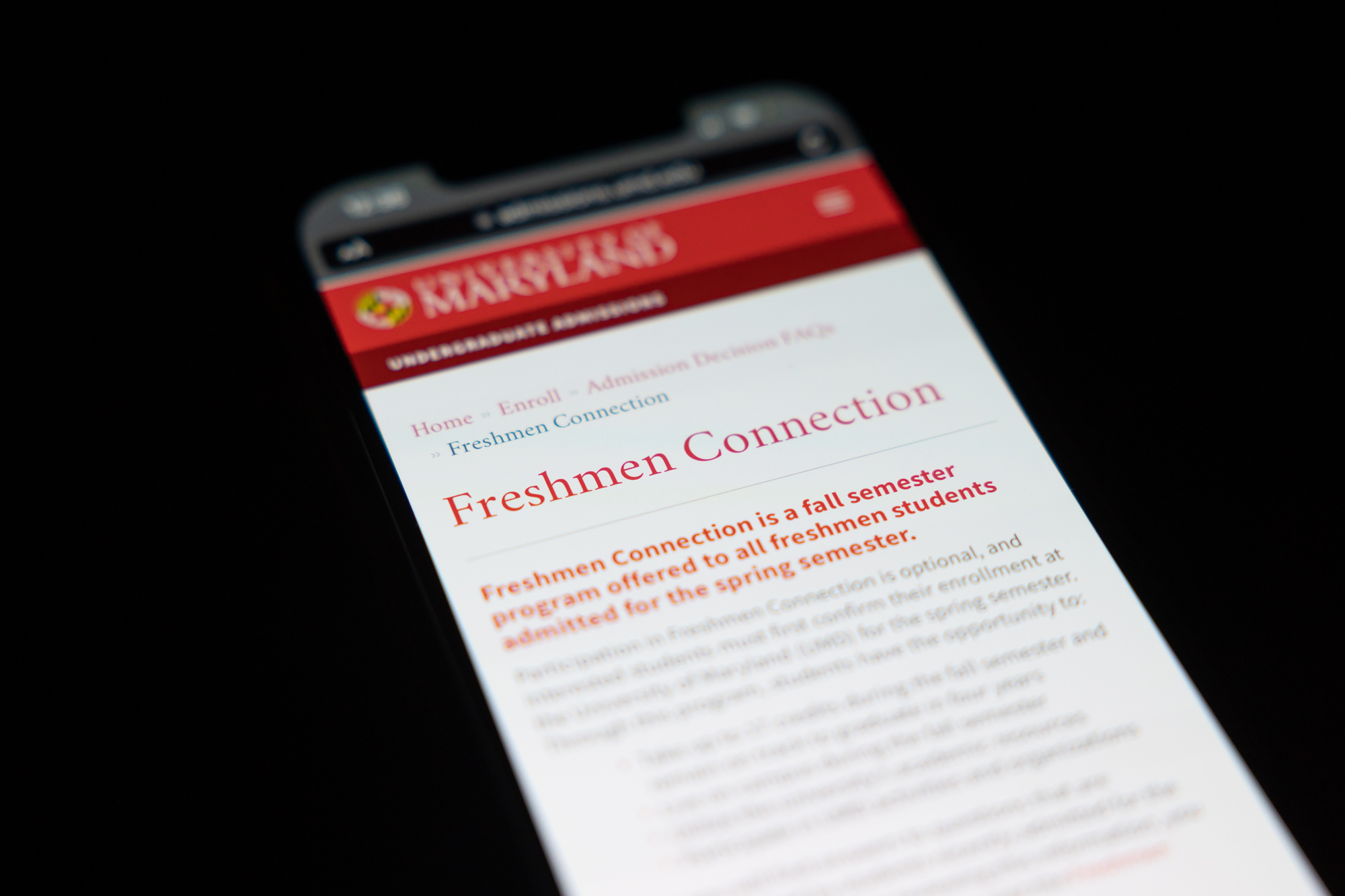Views expressed in opinion columns are the author’s own.
This fall, the University of Maryland announced multi-million dollar funding to support low-income students — a much-needed investment in need-based financial aid. But there’s still much more the university can do to make sure applicants from a variety of backgrounds thrive in College Park.
For instance, Freshmen Connection is offered to help university students admitted for the spring semester make academic progress and participate in campus life during the fall semester. One way to make strides in this area is expanding space in this program and reducing inequities between students on the campus. Selectivity — an artificial label — should not be a goal of this university.
Spring semester admission enables universities to enroll more students who may show fewer traditional measures of academic success without their rankings being affected. This way, students who have demonstrated other compelling characteristics, such as growth, leadership and service still have the opportunity to receive a college education.
The Freshmen Connection program ensures a delayed start doesn’t detract from a student’s introduction to college life, keeping them involved with the campus community and thus setting them up for success. Therefore creating a greater incentive for this university to admit such applicants.
Because university officials have emphasized that students admitted for the spring semester demonstrate a variety of talents and passions, they should put their money where their mouth is. Where our university decides to allocate its money reflects its priorities.
That means merit scholarships should not be limited to students admitted to the fall semester — a determination based on flawed factors such as standardized test scores. This restriction, which can make or break a student’s ability to attend this university, contradicts the expressed intentions of an extended test-optional policy to make admissions more just and accessible.
The signature utility of Freshmen Connection is permitting students to take introductory courses in the fall later in the day. Students in the program take classes together, which enables instructors to adapt coursework, but the restriction to evening sections is arbitrary and should be altered.
Participants have noted that Freshmen Connection courses frequently pose a barrier to full participation in campus activities, and therefore, having the option to take earlier classes would help encourage more involvement.
Meetings for clubs and other extracurricular activities often take place in the evening, as do recreational events such as sports games that help students develop a sense of belonging in the campus community.
The transition from high school to college can be tough enough for incoming freshmen by the very nature of moving away from home, making new friends and adjusting to living in a new place. On top of that, shifting from an academic schedule that starts as early as 7 a.m. to classes exclusively after 3 p.m. that can extend until as late as 9 p.m. is highly disorienting.
Meanwhile, many students not participating in Freshmen Connection may benefit from a selection of evening courses, whether as the result of personal preference or to make time for other daytime commitments, such as internships.
It would be trivial and mutually beneficial to interchange the times for a select number of sections for each Freshmen Connection course with those of standard sections. In cases where these sections are currently taught by different instructors, students in the program could actually benefit from learning from the instructor typically assigned to fall admits, which could help ensure the quality of the class and coursework do not drastically differ.
To address concerns about where additional Freshmen Connection students would live, expanding accommodations for spring entrants is hardly a new or unfamiliar task for this university. We can make use of the capacity created by newer dorms, such as the Pyon-Chen and Johnson-Whittle Halls.
University officials must remember selectivity is not a virtue. As a public university, we have a mandate to serve the public good — that’s precisely why we have an imperative to reform the Freshmen Connection program.
Dhruvak Mirani is a freshman computer science and government and politics major. Mirani can be reached at contact@dhruvak.com.



